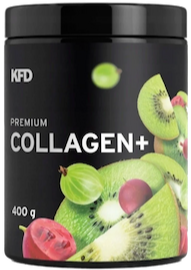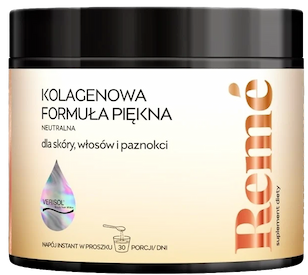Best liquid collagen drink supplement 2025
Liquid collagen is a convenient youth protein supplement with rapid action.


Learn more about our editorial process
.

Learn more about our editorial process
.

Learn more about our editorial process
.

Learn more about our editorial process
.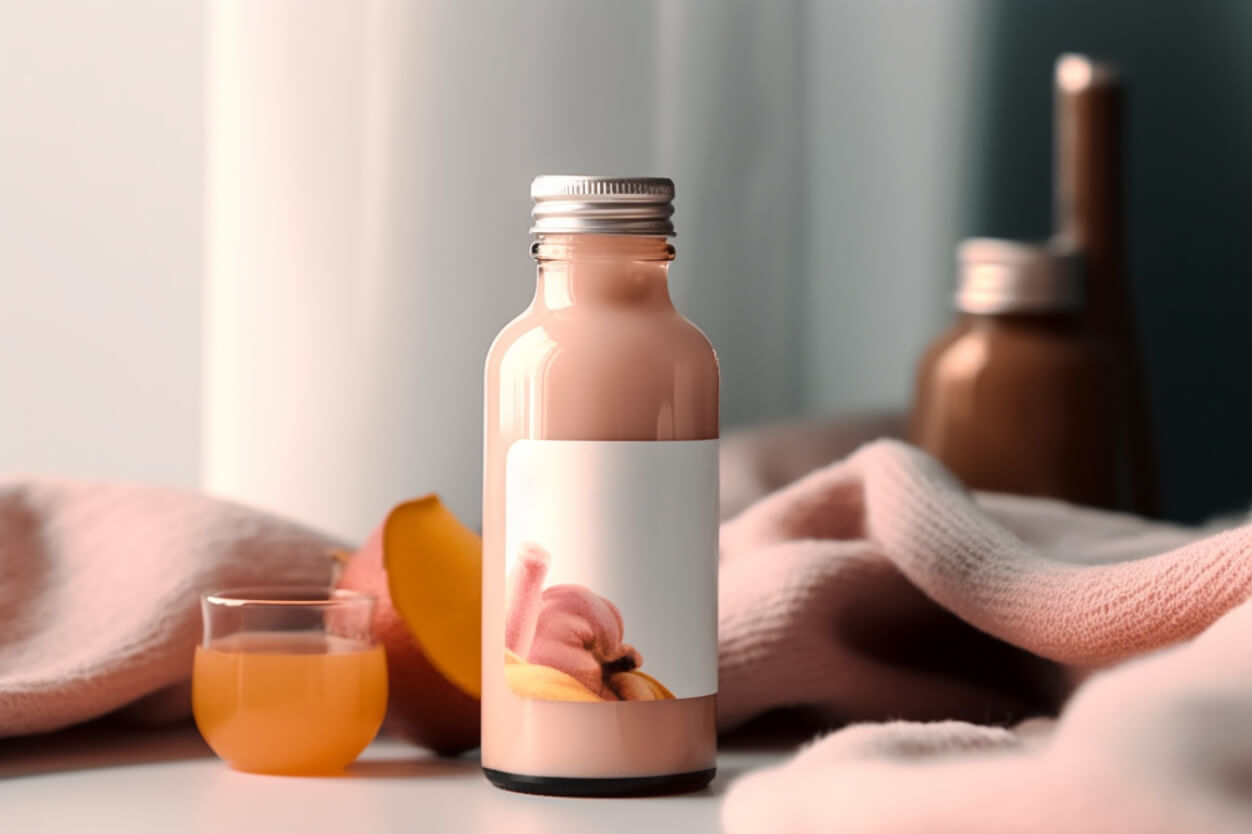
Why you can trust us
Articles on Natu.Care are written based on scientific research, data from government websites and other reliable sources. The texts are written in cooperation with doctors, nutritionists and other health and beauty experts. Articles are reviewed before publication and during significant updates.
.Learn more about our editorial process
.Information about advertisements
Content on Natu.Care may contain links to products from the sale of which we may receive a commission. When creating content, we adhere to high editorial standards and take care to be objective about the products discussed. The presence of affiliate links is not dictated by our partners, and we select the products we review ourselves completely independently.
.Learn more about our terms and Conditions
.Drop the measuring cup, hide the frother and don't stress about big collagen capsules. One sip, shot, drink or cocktail (yes, manufacturers are fancy) and you'll quickly provide your body with the fuel that is liquid collagen.
The liquid form is quickly absorbed and the collagen molecules are just waiting to provide you with valuable properties for beauty and health. But, but... Liquid is unequal to liquid, many manufacturers don't state the source of the collagen and the additional active ingredients are in 'homeopathic' doses.
It's not easy.
I have reviewed dozens of collagens for you and juxtaposed them with the opinions of a Master Pharmacist.
From this list you will choose the best liquid collagen without the risk of buying sterile juice.
From this article you will learn:
- What are the best liquid collagens on the market
- How to choose the right liquid collagen for you
- Other but equally good forms of collagen administration

Zobacz, co może zrobić dla Twojego zdrowia i urody Natu.Care Kolagen Premium 5000 mg -15% z kodem BLOG15
Natu.Care Kolagen Premium 5000 mg, kakao
Natu.Care Kolagen Premium dla zdrowia stawów, skóry, paznokci i włosów. Najlepsza przyswajalność. Optymalna dawka 5 000 lub 10 000 mg. Przebadany przez niezależne laboratorium.
Zobacz więcej
Efekty zaczęłam dostrzegać po około 5 tygodniach. Włosy są nawilżone, przestały też wypadać. Moja wrażliwa cera przestała się przesuszać. Plus za pyszny smak!@Milena Dlugosz
See also:
- The most powerful collagen for skin, hair, joints
- Best collagen for face
- Best collagen for skin
- Best collagen for joints
- Best collagen for bones
- Best collagen for tendons
- Best collagen for hair
- Best collagen for wrinkles
- Collagen for cellulite
- Collagen for acne
- Collagen for stretch marks
Some manufacturers in this listing did not specify the origin and type of collagen. I have asked them directly to provide this information and when I have it, I will complete the summary.
Liquid collagen - ranking and selection criteria
Number of products analysed: 74.Number of finalists: 7.
The composition of the collagens was assessed by Magister of Pharmacy Ilona Krzak
Products in the list are assessed for:
- Collagen content. According to scientific studies, effective formulations contain 2.5-15 grams of collagen hydrolysateand
- Origin of collagen. We value collagen sourced from certified sources. The best quality formulations contain collagen from wild-caught fishand
- Purity of formulation. The best dietary supplements are free of unnecessary and worthless fillers, flavourings, preservatives.
- Additional active ingredients. Vitamins, minerals and other beneficial compounds are welcome in the formulation. Especially those that support the absorption and natural production of collagen in the body.
- Research and certification. Independent, accredited laboratories confirm the quality of the collagen composition.
- Expert and user reviews. Specialists from many fields share their knowledge of how collagen works, and users best verify the manufacturer's claims about the product's performance. Here you can see the full criteria
Natu.Care Collagen Premium 5000 mg, mango-maracuja

- Collagen content: 5000 mg marine collagen hydrolysate
- .
- Additional active ingredients: vitamin C, low molecular weight hyaluronic acid (and L-theanine and coenzyme Q10 in cocoa flavoured collagen or vitamin A and vitamin E in mango–passion fruit flavoured collagen)
- .
- Form: powder sachets
- .
- Dose: 1 sachet per day
- .
- Sufficient for: 30 days
- .
Product description
Fish collagen from the Natu.Care brand in a dose of 5000 mg. The formula contains a sufficient portion of the active substance to positively affect your joints, musculoskeletal system and immunity.
Take care of your tendons, joint cartilage, ligaments, muscles and even bones by supplying them with the building blocks to function properly. Move without bólu and provide the necessary support for any physical activity.
And as a „gratis” to regular supplementation, you will also receive firm skinóhand, healthy and shiny hair and strong nails.
Natu.Care Premium Collagen is available in two flavours – Cacao Bloom and Rise&Shine. Both formulas are based on the following active ingredients: marine collagen hydrolysate, wild roseóbud extract and hyaluronic acid.
Additionally, Cacao Bloom contains natural L-theanine, coenzyme Q10 and defatted Dutch cacao. Rise&Shine instead contains vitamin E and vitamin A.
These are the best collagens in the world.
These best fish collagens on the market also rós taste – Cacao Bloom is a treat for chocolate lovers. Rise&Shine will appeal to those whoóenjoy the refreshing taste of mangoófruit and passion fruit.
Pros and cons
Fish collagen from the Natu.Care brand in a dose of 5000 mg. The formula contains a sufficient portion of the active substance to positively affect your joints, musculoskeletal system and immunity.
Take care of your tendons, joint cartilage, ligaments, muscles and even bones by supplying them with the building blocks to function properly. Move without bólu and provide the necessary support for any physical activity.
And as a „gratis” to regular supplementation, you will also receive firm skinóhand, healthy and shiny hair and strong nails.
Natu.Care Premium Collagen is available in two flavours – Cacao Bloom and Rise&Shine. Both formulas are based on the following active ingredients: marine collagen hydrolysate, wild roseóbud extract and hyaluronic acid.
Additionally, Cacao Bloom contains natural L-theanine, coenzyme Q10 and defatted Dutch cacao. Rise&Shine instead contains vitamin E and vitamin A.
These are the best collagens in the world.
These best fish collagens on the market also rós taste – Cacao Bloom is a treat for chocolate lovers. Rise&Shine will appeal to those whoóenjoy the refreshing taste of mangoófruit and passion fruit.
Additional information
Fish collagen from the Natu.Care brand in a dose of 5000 mg. The formula contains a sufficient portion of the active substance to positively affect your joints, musculoskeletal system and immunity.
Take care of your tendons, joint cartilage, ligaments, muscles and even bones by supplying them with the building blocks to function properly. Move without bólu and provide the necessary support for any physical activity.
And as a „gratis” to regular supplementation, you will also receive firm skinóhand, healthy and shiny hair and strong nails.
Natu.Care Premium Collagen is available in two flavours – Cacao Bloom and Rise&Shine. Both formulas are based on the following active ingredients: marine collagen hydrolysate, wild roseóbud extract and hyaluronic acid.
Additionally, Cacao Bloom contains natural L-theanine, coenzyme Q10 and defatted Dutch cacao. Rise&Shine instead contains vitamin E and vitamin A.
These are the best collagens in the world.
These best fish collagens on the market also rós taste – Cacao Bloom is a treat for chocolate lovers. Rise&Shine will appeal to those whoóenjoy the refreshing taste of mangoófruit and passion fruit.
User review
Fish collagen from the Natu.Care brand in a dose of 5000 mg. The formula contains a sufficient portion of the active substance to positively affect your joints, musculoskeletal system and immunity.
Take care of your tendons, joint cartilage, ligaments, muscles and even bones by supplying them with the building blocks to function properly. Move without bólu and provide the necessary support for any physical activity.
And as a „gratis” to regular supplementation, you will also receive firm skinóhand, healthy and shiny hair and strong nails.
Natu.Care Premium Collagen is available in two flavours – Cacao Bloom and Rise&Shine. Both formulas are based on the following active ingredients: marine collagen hydrolysate, wild roseóbud extract and hyaluronic acid.
Additionally, Cacao Bloom contains natural L-theanine, coenzyme Q10 and defatted Dutch cacao. Rise&Shine instead contains vitamin E and vitamin A.
These are the best collagens in the world.
These best fish collagens on the market also rós taste – Cacao Bloom is a treat for chocolate lovers. Rise&Shine will appeal to those whoóenjoy the refreshing taste of mangoófruit and passion fruit.
Natu.Care Collagen Premium 10000 mg, cherry

- Collagen content: 10,000 mg of hydrolyzed bovine collagen
- Additional active ingredients: vitamin C, low molecular weight hyaluronic acid, glucosamine, chondroitin, extract of Indian frankincense resin (boswellia serrata)
- Form: powder sachets for drinking
- Serving: 1 sachet per day
- Lasts for: 30 days
Product description
One of the strongest collagens on the market, providing as much as 10,000 mg per daily serving. This product can effectively support the condition of joints, skin, hair, and nails.
With this supplement, you will support your skeletal and joint system as well as your beauty, helping you visually halt the aging process and feel rejuvenated!
Pros and cons
Pros:
- The daily portion of collagen is very large – as much as 10,000 mg.
- Proven collagen formula – COLLinstant, whose effectiveness has been confirmed in clinical studies.
- Effective dose of hyaluronic acid, which additionally moisturizes the skin and positively affects joint health.
- Vitamin C supports the body's natural collagen production.
- Glucosamine is a fundamental building block of compounds found in joint cartilage and a component of collagen that gives elasticity to connective tissue in tendons.
- Chondroitin is a natural component found in the human body, mainly in cartilage. This large molecule (mucopolysaccharide) has the ability to absorb water, which helps maintain the elasticity and resilience of cartilage.
- Frankincense resin extract supports blood circulation and joint mobility and reduces their stiffness. It may help alleviate inflammatory conditions.
- The composition has been tested by the independent and accredited J.S. Hamilton laboratory.
Cons:
- None.
Additional information
Users praise Natu.Care Collagen Premium for the easy dissolving of the powder.
ALLDEYNN Collarose Fish
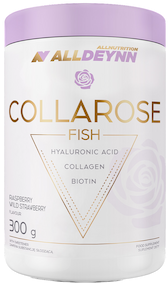
- Collagen content: 5000 mg hydrolysate fish collagen VERISOL F® .
- Additional active ingredients: vitamin C, hyaluronic acid, biotin
- Form: powder to dissolve in water .
- Dose: one scoop (6 g) of powder daily .
- Sufficient for: 50 days .
Product description
Atlantic cod collagen VERISOL F® contained in the formula are easily absorbed collagen peptides of fish origin. Regular supplementation can firm your skinóhand and slow down the ageing process. Your nails will become stronger and stop breaking. The addition of biotin will improve the condition of your hairów. The collagen portion is high enough to also have a good effect on your joints, muscles and bones.
Pros and cons
Atlantic cod collagen VERISOL F® contained in the formula are easily absorbed collagen peptides of fish origin. Regular supplementation can firm your skinóhand and slow down the ageing process. Your nails will become stronger and stop breaking. The addition of biotin will improve the condition of your hairów. The collagen portion is high enough to also have a good effect on your joints, muscles and bones.
Additional information
Atlantic cod collagen VERISOL F® contained in the formula are easily absorbed collagen peptides of fish origin. Regular supplementation can firm your skinóhand and slow down the ageing process. Your nails will become stronger and stop breaking. The addition of biotin will improve the condition of your hairów. The collagen portion is high enough to also have a good effect on your joints, muscles and bones.
Expert and user opinion
Atlantic cod collagen VERISOL F® contained in the formula are easily absorbed collagen peptides of fish origin. Regular supplementation can firm your skinóhand and slow down the ageing process. Your nails will become stronger and stop breaking. The addition of biotin will improve the condition of your hairów. The collagen portion is high enough to also have a good effect on your joints, muscles and bones.
DuoLife Collagen fish collagen 2500 mg
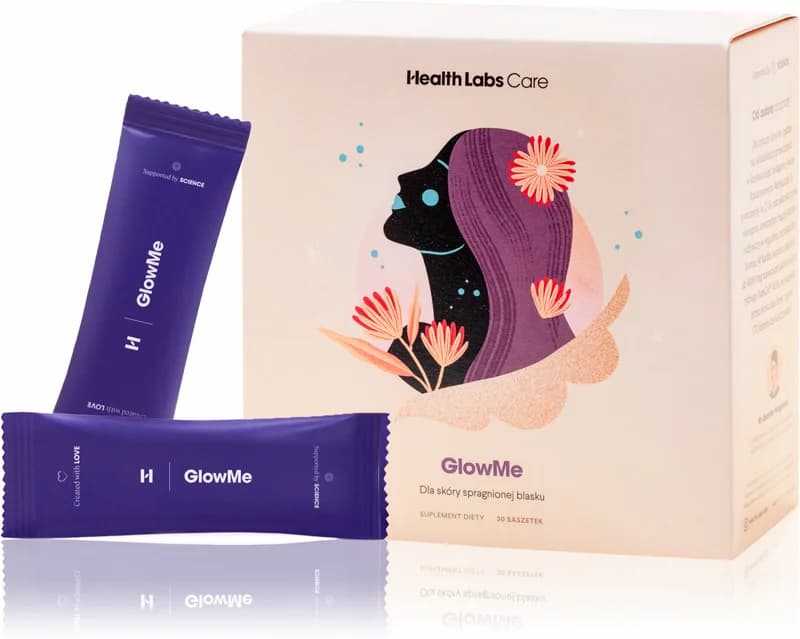
- Collagen content: 2500 mg collagen
- Additional active ingredients: vitamin C, silicon, glucosamine, hyaluronic acid, nettle and bamboo extracts
- Form: liquid to drink .
- Dose:25 ml .
- Sufficient for: 30 days .
Product description
100% natural collagen liquid without unnecessary ingredientsós. The composition of ingredientsós improves the appearance and condition of skinóry, hairów, nails. DuoLife is a good choiceór if you notice the first signs of skinóry ageing or want to stop this process. A tasty liquid, convenient to use.
Pros and cons
100% natural collagen liquid without unnecessary ingredientsós. The composition of ingredientsós improves the appearance and condition of skinóry, hairów, nails. DuoLife is a good choiceór if you notice the first signs of skinóry ageing or want to stop this process. A tasty liquid, convenient to use.
Additional information
100% natural collagen liquid without unnecessary ingredientsós. The composition of ingredientsós improves the appearance and condition of skinóry, hairów, nails. DuoLife is a good choiceór if you notice the first signs of skinóry ageing or want to stop this process. A tasty liquid, convenient to use.
User review
100% natural collagen liquid without unnecessary ingredientsós. The composition of ingredientsós improves the appearance and condition of skinóry, hairów, nails. DuoLife is a good choiceór if you notice the first signs of skinóry ageing or want to stop this process. A tasty liquid, convenient to use.
Pharmovit liquid collagen 10000 mg
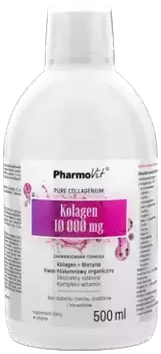
- Collagen content: 10000 mg hydrolysed bovine collagen types I and III .
- Additional active ingredients: hyaluronic acid, natural plant extracts, vitamin C, B vitamins, zinc, vitamin D
- Form: vials .
- Dose: 25 ml .
- Sufficient for: 20 days .
Product description
A solid daily dose of collagen for jointómuscle and bone health and beauty. The duo of collagen and vitamin C has a positive effect on each other, so that „the protein of youth” is better absorbed and more efficiently produced in the body.
Pros and cons
A solid daily dose of collagen for jointómuscle and bone health and beauty. The duo of collagen and vitamin C has a positive effect on each other, so that „the protein of youth” is better absorbed and more efficiently produced in the body.
Additional information
A solid daily dose of collagen for jointómuscle and bone health and beauty. The duo of collagen and vitamin C has a positive effect on each other, so that „the protein of youth” is better absorbed and more efficiently produced in the body.
KFD Premium Collagen+
Product description
High dose of collagen and a real bomb of vitamins C and D and organic sulphur. With this preparation the effects will come immediately. You will improve the firmness of your skin and reduce wrinkles. Your hair and nails will be strong and shiny.
A generous dose of collagen will improve the mobility of your jointsós, benefit your bone system and muscles. Do you do sports and need a product thatós able to keep up with your needs? This product will do the trick.
Pros and cons
High dose of collagen and a real bomb of vitamins C and D and organic sulphur. With this preparation the effects will come immediately. You will improve the firmness of your skin and reduce wrinkles. Your hair and nails will be strong and shiny.
A generous dose of collagen will improve the mobility of your jointsós, benefit your bone system and muscles. Do you do sports and need a product thatós able to keep up with your needs? This product will do the trick.
Additional information
High dose of collagen and a real bomb of vitamins C and D and organic sulphur. With this preparation the effects will come immediately. You will improve the firmness of your skin and reduce wrinkles. Your hair and nails will be strong and shiny.
A generous dose of collagen will improve the mobility of your jointsós, benefit your bone system and muscles. Do you do sports and need a product thatós able to keep up with your needs? This product will do the trick.
Expert opinion
High dose of collagen and a real bomb of vitamins C and D and organic sulphur. With this preparation the effects will come immediately. You will improve the firmness of your skin and reduce wrinkles. Your hair and nails will be strong and shiny.
A generous dose of collagen will improve the mobility of your jointsós, benefit your bone system and muscles. Do you do sports and need a product thatós able to keep up with your needs? This product will do the trick.
Product description
The dietary supplement from Remé contains beef collagen in a patented formula and vitamin C, whichóra aids its absorption. The formula comes in three flavours: neutral, orange-maracuja and strawberry-pomegranate. The formula can effectively support and improve the condition of the skinóry, hairóry and nails.
Pros and cons
The dietary supplement from Remé contains beef collagen in a patented formula and vitamin C, whichóra aids its absorption. The formula comes in three flavours: neutral, orange-maracuja and strawberry-pomegranate. The formula can effectively support and improve the condition of the skinóry, hairóry and nails.
Additional information
The dietary supplement from Remé contains beef collagen in a patented formula and vitamin C, whichóra aids its absorption. The formula comes in three flavours: neutral, orange-maracuja and strawberry-pomegranate. The formula can effectively support and improve the condition of the skinóry, hairóry and nails.
The dietary supplement from Remé contains beef collagen in a patented formula and vitamin C, whichóra aids its absorption. The formula comes in three flavours: neutral, orange-maracuja and strawberry-pomegranate. The formula can effectively support and improve the condition of the skinóry, hairóry and nails.
Does liquid collagen for skin work?
Liquid collagen - for drinking - works on the skin. Liquid collagen - for application to the skin - does not.
There are other products for external care that contain collagen. Unfortunately, liquid collagen for skin and face will not give you the results promised by the manufacturers. A doctor of medical science explains:
Collagen applied to the skin will not work as the advertisements promise. It will not reduce wrinkles and it will not promote collagen secretion in the skin. Collagen applied to the skin ostensibly hydrates the skin, but it will never reach the dermis because the molecule is too large to penetrate the epidermal barrier.

Witold Tomaszewskidoctor of medical sciences
If you're looking for cosmetics that work, check out our rankings:
What are the benefits of liquid collagen?
- Faster absorption. The liquid form of collagen is absorbed into the body more quickly than, for example, tablets, whose shell must first dissolve in the stomach.
- Convenient form. You don't have to prepare the drink from powder. Many manufacturers offer individual shots that you can drink where and when you want.
- Easier to consume. Even if you don't like the taste of the liquid, you can add it to, for example, yoghurt or water, but it will be more enjoyable than sipping several capsules.
- More collagen per serving. It is easier to fit and concentrate high doses in a liquid than in a capsule. One sip versus several capsules a day. The choice is simple.
What are the disadvantages of liquid collagen?
- Shorter shelf life. The liquid form of collagen has a shorter expiry date than tablets or powder. You usually need to drink the whole pack within 30 days.
- Shorter shelf life.
- Storage requirements. Liquid collagen sold in bottles should be kept in the refrigerator. Temperature and light can adversely affect its properties.
- Dosing is not always precise. You know how it is - sometimes you pour less on the measure, sometimes you pour more, and sometimes you drink out of the supplement.
- The form of the shots is not environmentally friendly. Disposable shots are another unnecessary plastic for the environment. Better to buy collagen in glass bottles.
- The presence of unnecessary ingredients. Liquid requires preservatives, and not every manufacturer chooses healthier, natural alternatives. Check the dietary supplement label carefully.

Zobacz, co może zrobić dla Twojego zdrowia i urody Natu.Care Kolagen Premium 5000 mg -15% z kodem BLOG15
Natu.Care Kolagen Premium 5000 mg, kakao
Natu.Care Kolagen Premium dla zdrowia stawów, skóry, paznokci i włosów. Najlepsza przyswajalność. Optymalna dawka 5 000 lub 10 000 mg. Przebadany przez niezależne laboratorium.
Zobacz więcej
Efekty zaczęłam dostrzegać po około 5 tygodniach. Włosy są nawilżone, przestały też wypadać. Moja wrażliwa cera przestała się przesuszać. Plus za pyszny smak!@Milena Dlugosz
Liquid collagen for joints, for hair, for skin... Do the names of collagens make sense?
What if I told you that buying collagen for your joints will also give you a nice wrinkle-free complexion, strong hair and nail growth? Collagen is not selective, it works on virtually the entire body regardless of the labels we stick to it.
Collagen is not selective.
In liquid collagen, it is also the quality and quantity of the additional active ingredients that matter. Biotin, glucosamine or MSM look nice on the supplement packaging and reinforce the message "For joints" or "For wrinkles". However, if their amount is homeopathic, they will not work.
I saw a bull with pink collagen under his armpit. He knew that "10,000 mg collagen for hair" would be better for his joints and muscles than a packet with "2500 mg collagen for joints" + a long list of impressive ingredients in a ridiculously low dose.
See also:
Which liquid collagen to choose?
You have an advantage. You already know that you can buy a dietary supplement with the description Collagen for joints for men, being a woman, and collagen is unequal to collagen. Also make use of the download below.
Look at the daily dose of collagen
Minimum daily dose to meet your needs:
- 2.5 grams of collagen will positively impact the condition of your skin, hair and nails,
- 5 grams will improve bone density, support joint function and muscle regeneration,
- 15 grams will help increase muscle mass,
Lower doses of collagen than 2.5 grams can theoretically help you, but you will wait longer for results. Well, unless it's, for example, 100 mg in a daily dose - take a swipe at such products.
Collagen.
Pay attention to the type of collagen
The best collagen is hydrolysed fish collagen (sea collagen). Next in line is hydrolysed bovine or porcine collagen (also known as gelatine collagen). Note that not every manufacturer states whether their product is hydrolysed or native, and this is the difference in bioavailability (in favour of the former).
See additional active ingredients
The list of ingredients may be long, but the quality and quantity are hardly effective. Look at what the manufacturer promises, and what scientific research suggests in the effectiveness of the forms and doses of these ingredients.
Valuable supplemental ingredients for joints, bones and muscles
|
Name of ingredient |
Best form |
Minimum effective dose |
|
|
MSM (organic sulphur) |
pure methylsulfonylmethane |
3000 g |
|
|
glucosamine (preferably with chondroitin) |
glucosamine sulfate |
1500 mg |
|
|
chondroitin (preferably with glucosamine) |
chondroitin sulfate |
1200 mg |
|
|
vitamin C |
L-ascorbic acid, calcium ascorbate, sodium ascorbate |
100 mg |
|
|
curcumin |
extract standardized for curcuminoids |
500 mg |
Valuable additional ingredients for hair, skin and nails
|
Name of ingredient |
Best form |
Minimum effective dose |
|
|
vitamin C |
L-ascorbic acid, calcium ascorbate, sodium ascorbate |
100 mg |
|
|
Hyaluronic acid |
ultramolecular |
hyaluronic acid |
120 mg |
|
coenzyme Q10 |
ubiquinol |
500 mg |
|
|
biotin |
D-biotin |
1 mg |
|
|
vitamin A |
beta-carotene |
700 µg |
|
|
vitamin E |
alpha-tocopherol |
15 mg |
|
|
zinc |
Zinc diglycinate, zinc gluconate |
10 mg |
|
|
copper |
copper-diglycinate, copper gluconate |
copper. |
10 mg |
|
selenium |
L-selenomethionine or selenocysteine |
55 µg |
|
|
organic sulphur (MSM) |
Pure methylsulfonylmethane pure methylsulfonylmethane |
3 g |
|
|
plant additives |
extracts or extracts with stated standardization |
depends on the plant |
Important
The absorption of these compounds is influenced by: diet, medications taken (especially antacids), other dietary supplements, diseases (e.g. gastrointestinal diseases), alcohol consumption, smoking.

Zobacz, co może zrobić dla Twojego zdrowia i urody Natu.Care Kolagen Premium 5000 mg -15% z kodem BLOG15
Natu.Care Kolagen Premium 5000 mg, kakao
Natu.Care Kolagen Premium dla zdrowia stawów, skóry, paznokci i włosów. Najlepsza przyswajalność. Optymalna dawka 5 000 lub 10 000 mg. Przebadany przez niezależne laboratorium.
Zobacz więcej
Efekty zaczęłam dostrzegać po około 5 tygodniach. Włosy są nawilżone, przestały też wypadać. Moja wrażliwa cera przestała się przesuszać. Plus za pyszny smak!@Milena Dlugosz
See also:
- The best collagen for your face
- Best collagen for the skin
- Best collagen for wrinkles
- Collagen for cellulite
- Collagen for acne
- Collagen for stretch marks
- Collagen peptides
- Curcumin
- Curcuma tablets
- MSM (organic sulphur)
Summary
- The best liquid collagen should be in the form of fish hydrolysate, which assimilates more efficiently and quickly than other types.
- Fluid collagen should be sealed in a dark bottle that protects it from sunlight.
- A valuable additional ingredient in liquid collagen is vitamin C, which aids its absorption and production in the body.
- The effective dose of collagen for beauty enhancement is 2.5 grams (2,500 mg) per day, and to support joint health is 5 grams (5,000 mg).
- Pay attention to the quantity and quality of additional active ingredients.
FAQ
Is it safe to drink collagen?
Yes, drinking collagen is safe if you consume a good quality supplement and in reasonable daily doses. Collagen is safe for supplementation and has few contraindications for use. If in doubt, ask your doctor or pharmacist.
What kind of collagen does Jennifer Aniston drink?
Actress Jennifer Aniston drinks Vital Proteins Collagen Creamer. It is hydrolysed marine collagen containing 10 grams of collagen per serving. It is popular because you can add it to your coffee or other beverage, and the MCT oil gives it a nice texture.
How to use liquid collagen
Fluid collagen should be used according to the manufacturer's recommendations. For liquid collagen for drinking, one serving per day is usually used. Liquid collagen for application to the face or body is used on cleansed skin by patting the liquid in. But... this form of collagen application gives nothing but a temporary feeling of hydration. The collagen particles are too large to penetrate deep into the skin. Don't waste your money on such products.
What does drinking collagen help with?
Drinking collagen at a minimum daily dose of 2.5g positively affects the appearance and condition of skin hair and nails, while doses of 5g and above also support joints, bones and muscles. Systematic drinking of collagen improves skin firmness, accelerates wound healing, reduces fine wrinkles, accelerates nail growth and improves the appearance and texture of hair.
Which company's collagen do we recommend
The most powerful collagen on the market that we recommend is Natu.Care Collagen Premium 10 000 mg. Both Rise&Shine and Cacao Bloom are researched and effective products that, with regular supplementation, support skin, hair, nails and joints. Other companies worth considering include Aura Herbals and Sundose
What is liquid collagen for?
Drinking collagen in liquid is well absorbed and is effective in improving skin hydration and firmness, reducing wrinkles and preventing new ones. It promotes nail growth and strengthens the nail plate and accelerates the growth of new, strong hair. Doses of 5 mg and above also influence joint, bone and muscle health.
How long can you drink collagen?
Collagen can be drunk daily if you take it in reasonable daily doses and have no contraindications to use. There is no need to take breaks in supplementation with collagen
What is better collagen to drink or in tablets?
Drinkable collagen is better than collagen in tablets because it has better bioavailability, faster absorption into the body and a higher daily dose of collagen per serving. It is also a more convenient form of supplementation as it does not require swallowing capsules (sometimes as many as six per day).
What is better collagen or hyaluronic acid?
Both collagen and hyaluronic acid are important for our appearance and musculoskeletal health. Collagen is found in skin cells, while acid is found in membranes and intercellular spaces. They have different roles, but complement each other perfectly. Drinking collagen and hyaluronic acid is a nourishing combination for the skin, so it is a good idea to drink them at the same time when supplementing.
Collagen is responsible for the elasticity and restoration of the skin, while hyaluronic acid is responsible for the skin's hydration levels. Collagen is involved in the production of synovial fluid, which reduces joint friction, and hyaluronic acid keeps the joints moist. It is worth including both ingredients in your supplementation.
Is it better to take liquid or powdered collagen?
Both forms of collagen in both liquid and powder are rapidly absorbed. Liquid collagen is simpler to supplement as it does not require preparation like powder, but storage conditions must be observed to ensure the liquid retains its properties. The powder is easier to take with you when travelling and has a longer shelf life.
Sources
See all
Beba, M., Mohammadi, H., Clark, C. C. T., & Djafarian, K. (2022). The effect of curcumin supplementation on delayed-onset muscle soreness, inflammation, muscle strength, and joint flexibility: A systematic review and dose-response meta-analysis of randomized controlled trials. Phytotherapy Research, 36(7), 2767-2778. https://doi.org/10.1002/ptr.7477
Bourdon, B., Contentin, R., Cassé, F., Maspimby, C., Oddoux, S., Noël, A., Legendre, F., Gruchy, N., & Galéra, P. (2021). Marine Collagen Hydrolysates Downregulate the Synthesis of Pro-Catabolic and Pro-Inflammatory Markers of Osteoarthritis and Favor Collagen Production and Metabolic Activity in Equine Articular Chondrocyte Organoids. International Journal of Molecular Sciences, 22(2), 580. https://doi.org/10.3390/ijms22020580
Butawan, M., Benjamin, R. L., & Bloomer, R. J. (2017). Methylsulfonylmethane: Applications and Safety of a Novel Dietary Supplement. Nutrients, 9(3), 290. https://doi.org/10.3390/nu9030290
Calderón-Ospina, C. A., & Nava-Mesa, M. O. (2019). B Vitamins in the nervous system: Current knowledge of the biochemical modes of action and synergies of thiamine, pyridoxine, and cobalamin. CNS Neuroscience & Therapeutics, 26(1), 5-13. https://doi.org/10.1111/cns.13207
Cheung, K., Hume, P., & Maxwell, L. (2003). Delayed onset muscle soreness: Treatment strategies and performance factors. Sports Medicine (Auckland, N.Z.), 33(2), 145-164. https://doi.org/10.2165/00007256-200333020-00005
Clifford, T., Ventress, M., Allerton, D. M., Stansfield, S., Tang, J. C. Y., Fraser, W. D., Vanhoecke, B., Prawitt, J., & Stevenson, E. (2019). The effects of collagen peptides on muscle damage, inflammation and bone turnover following exercise: A randomized, controlled trial. Amino Acids, 51(4), 691-704. https://doi.org/10.1007/s00726-019-02706-5
Dai, Z., & Koh, W.-P. (2015). B-Vitamins and Bone Health-A Review of the Current Evidence. Nutrients, 7(5), 3322-3346. https://doi.org/10.3390/nu7053322
de Araújo, L. A., Addor, F., & Campos, P. M. B. G. M. (2016). Use of silicon for skin and hair care: An approach of chemical forms available and efficacy. Anais Brasileiros de Dermatologia, 91(3), 331-335. https://doi.org/10.1590/abd1806-4841.20163986
DePhillipo, N. N., Aman, Z. S., Kennedy, M. I., Begley, J. P., Moatshe, G., & LaPrade, R. F. (2018). Efficacy of Vitamin C Supplementation on Collagen Synthesis and Oxidative Stress After Musculoskeletal Injuries: A Systematic Review. Orthopaedic Journal of Sports Medicine, 6(10), 2325967118804544. https://doi.org/10.1177/2325967118804544
Hargreaves, I., Heaton, R. A., & Mantle, D. (2020). Disorders of Human Coenzyme Q10 Metabolism: An Overview. International Journal of Molecular Sciences, 21(18), 6695. https://doi.org/10.3390/ijms21186695
Lubis, A. M. T., Siagian, C., Wonggokusuma, E., Marsetyo, A. F., & Setyohadi, B. (2017). Comparison of Glucosamine-Chondroitin Sulfate with and without Methylsulfonylmethane in Grade I-II Knee Osteoarthritis: A Double Blind Randomized Controlled Trial. Acta Medica Indonesiana, 49(2), 105-111.
Misner, B., Bagchi, M., Kothari, S. C., Downs, B. W., Fafard, R. D., & Preuss, H. G. (2002). Effects of orally administered undenatured type II collagen against arthritic inflammatory diseases: A mechanistic exploration. International Journal of Clinical Pharmacology Research, 22(3-4), 101-110.
Peng, Y., Ao, M., Dong, B., Jiang, Y., Yu, L., Chen, Z., Hu, C., & Xu, R. (2021). Anti-Inflammatory Effects of Curcumin in the Inflammatory Diseases: Status, Limitations and Countermeasures. Drug Design, Development and Therapy, 15, 4503-4525. https://doi.org/10.2147/DDDT.S327378
Sawicka, A. K., Renzi, G., & Olek, R. A. (2020). The bright and the dark sides of L-carnitine supplementation: A systematic review. Journal of the International Society of Sports Nutrition, 17(1), 49. https://doi.org/10.1186/s12970-020-00377-2
Schön, C., Knaub, K., Alt, W., Durkee, S., Saiyed, Z., & Juturu, V. (2022). UC-II Undenatured Type II Collagen for Knee Joint Flexibility: A Multicenter, Randomized, Double-Blind, Placebo-Controlled Clinical Study. Journal of Integrative and Complementary Medicine, 28(6), 540-548. https://doi.org/10.1089/jicm.2021.0365
Shiojima, Y., Takahashi, M., Takahashi, R., Maruyama, K., Moriyama, H., Bagchi, D., Bagchi, M., & Akanuma, M. (2023). Efficacy and Safety of Dietary Undenatured Type II Collagen on Joint and Motor Function in Healthy Volunteers: A Randomized, Double-Blind, Placebo-Controlled, Parallel-Group Study. Journal of the American Nutrition Association, 42(3), 224-241. https://doi.org/10.1080/07315724.2021.2024466
Tucker, K. L., Hannan, M. T., Qiao, N., Jacques, P. F., Selhub, J., Cupples, L. A., & Kiel, D. P. (2005). Low plasma vitamin B12 is associated with lower BMD: The Framingham Osteoporosis Study. Journal of Bone and Mineral Research: The Official Journal of the American Society for Bone and Mineral Research, 20(1), 152-158. https://doi.org/10.1359/JBMR.041018
Yarizadh, H., Shab-Bidar, S., Zamani, B., Vanani, A. N., Baharlooi, H., & Djafarian, K. (2020). The Effect of L-Carnitine Supplementation on Exercise-Induced Muscle Damage: A Systematic Review and Meta-Analysis of Randomized Clinical Trials. Journal of the American College of Nutrition, 39(5), 457-468. https://doi.org/10.1080/07315724.2019.1661804
Jelonek, L. (2023). Collagen. Everything you need to know (B. Turczynski, ed.; 1st ed.). Natu.Care. https://books.google.com/books?vid=9788396887801
Editorials
Meet the team

Ilona Krzak obtained her Master of Pharmacy degree from the Medical University of Wrocław. She did her internship in a hospital pharmacy and in the pharmaceutical industry. She is currently working in the profession and also runs an educational profile on Instagram: @pani_z_apteki

Editor
Graduate of Journalism and Artes Liberales at the University of Warsaw. Since 2017, he has been working with the biggest portals in Poland and abroad as an editor. Previously worked for 3 years in one of the leading pharmaceutical companies - he knows the health and beauty industry inside out. In his free time, he most enjoys playing tennis or skiing.
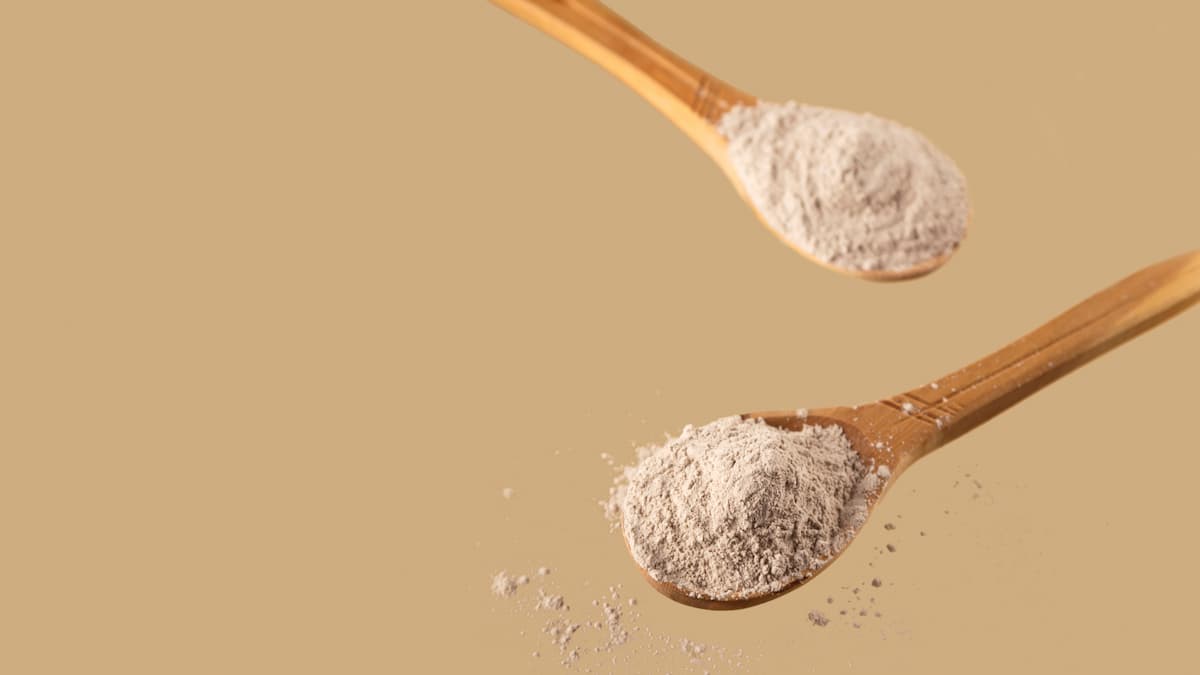
Everything you want to know about COLLinstant collagen.

Collibre collagen is an interesting supplement in shot form.
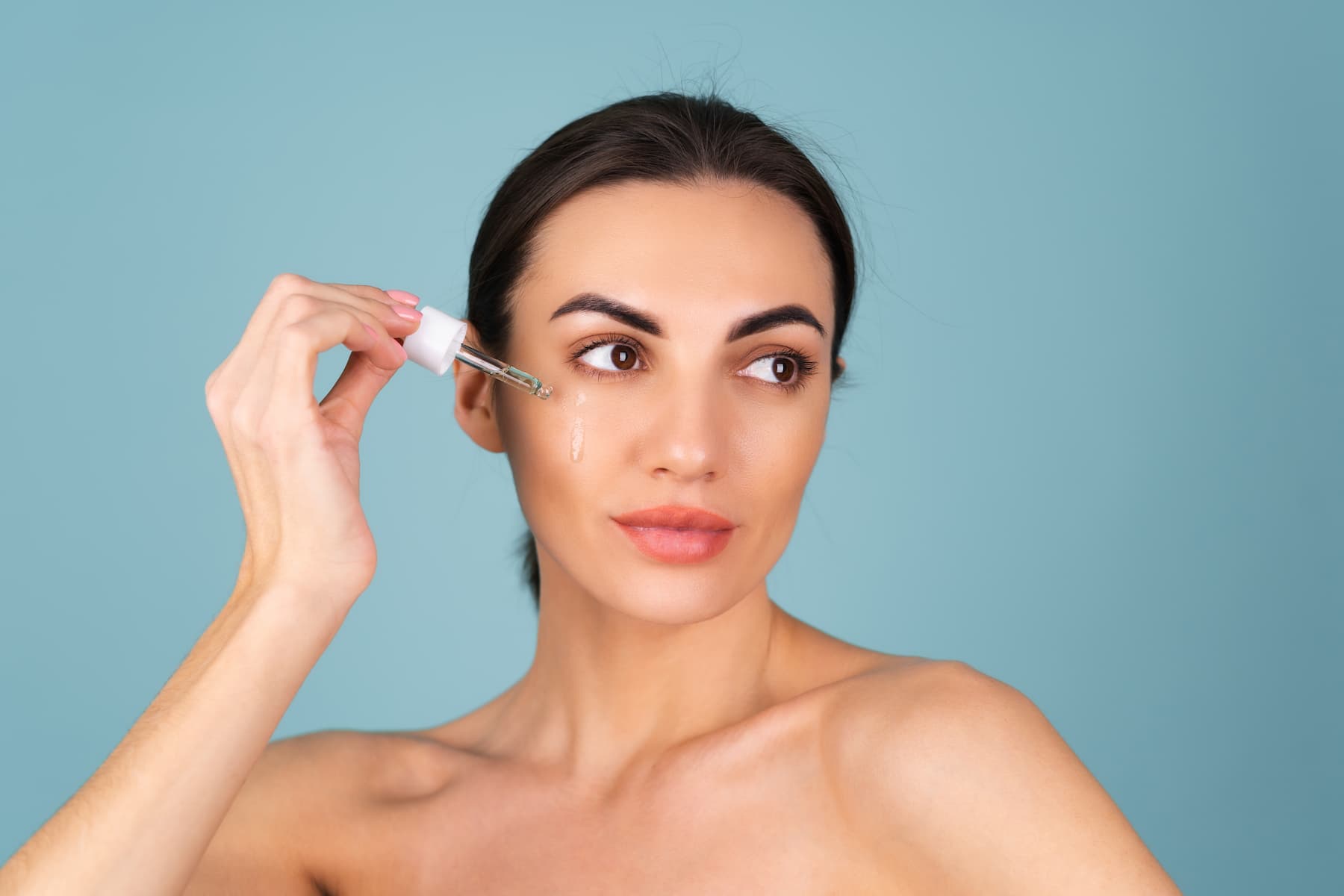
Solgar collagen with hyaluronic acid is a dietary supplement that supports skin and joint health.
